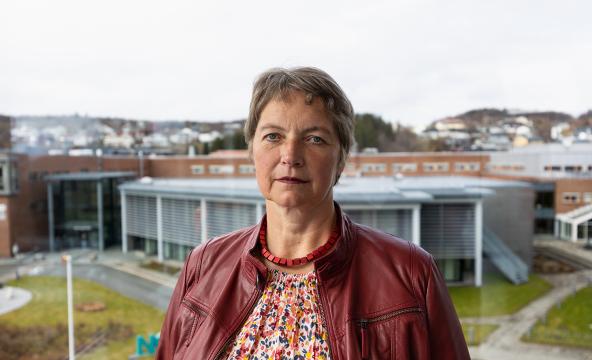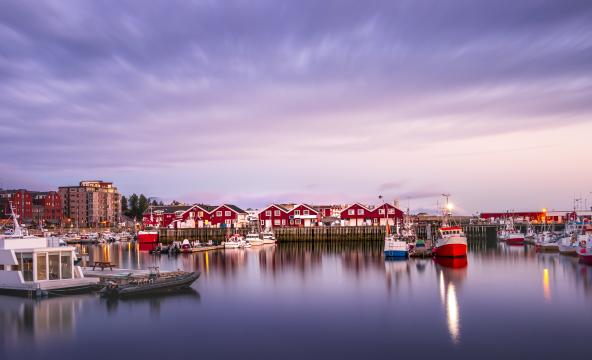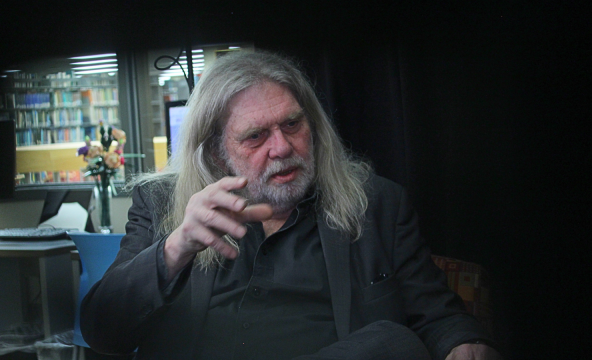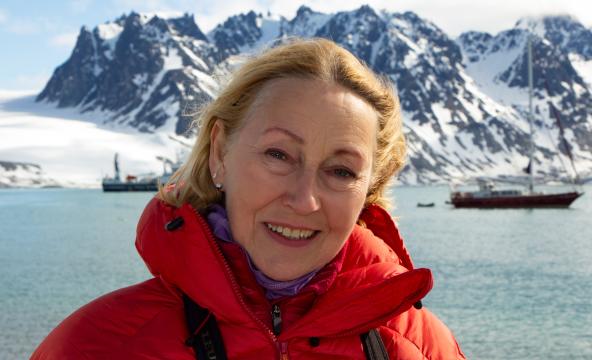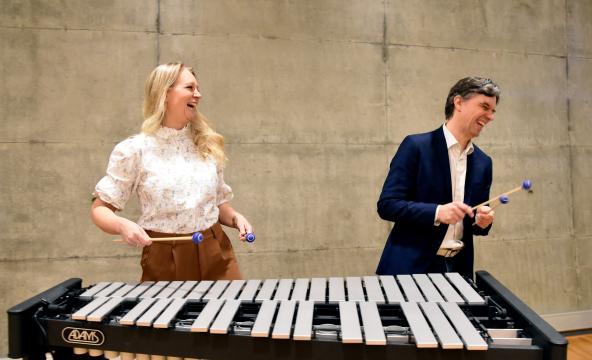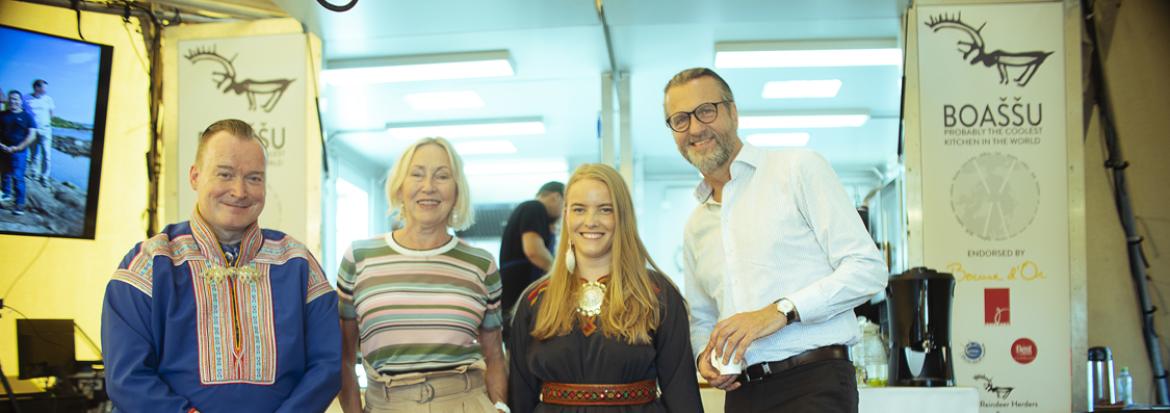
This article is more than one year old.
Arendalsuka took place on August 15 – 19 2022 and the High North Center participated in and organized panel debates in the world's largest lavvo at Fløyheia above the city, as part of a four-day long event organised by the High North Partnership. Bjørn Olsen from the High North Center and Nord University Business School also gave presentations during these days.
Do we need a population in the north?
On Wednesday, the High North Center organized three panel debates. The migration in Norway is southbound, and it is especially young people who move from the north. But do we really need people in Northern Norway? And how critical is the labour shortage?
These were just some of the questions that the panel "People in the North: Do we really need people in the North?" picked up. The panel consisted of:
- Linda Haukeland, County Council for Planning and Industry, Nordland County Council
- Yngve Odlo, Lieutenant General/Chief, The Armed Forces' operational headquarters
- Lill Sverresdatter Larsen, Union leader, Norwegian Nurses' Association
- Guro Brandshaug, Managing Director, Origo and Kirkeneskonferansen
- Kathrine Tveiterås, Vice Chancellor Education, UiT (panel leader)
Norway is unique
Odlo, who is the head of the Norwegian Armed Forces' operational headquarters at Reitan outside Bodø, was aware that in order to defend a part of the country there had to be people there. Here he believed that the Armed Forces were an important contributor by creating jobs, both directly and indirectly. He also reminded us about that the fact that having such a dense population this far north in the Arctic was unique to Norway. Nevertheless, the Norwegian Armed Forces have also noticed that it is difficult to recruit people.
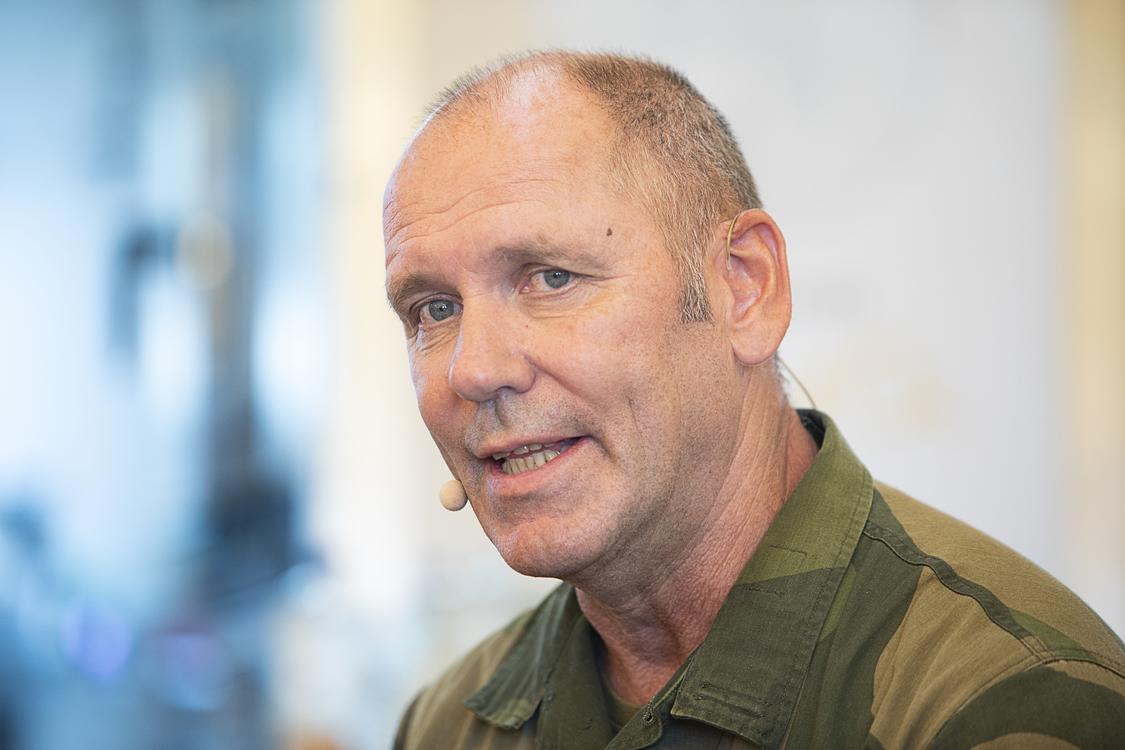
Han var uansett klar på én ting:
– Vi trenger folk boende i nord for å ha et totalforsvar!
Global shortage
Lill Sverresdatter of the Norwegian Nurses' Association said that what they saw was a global shortage of nurses and health personnel, and that this made the situation extra difficult.
– 15,000 are missing in Norway, but these are presumably optimistic figures. 8,000 nursing positions use temps and unskilled workers to fill gaps.
According to her the explanation was complex.
– Privatization, the beauty industry and other things take resources from the public sector. We must have a debate about our priorities: If we are to have "people in the house" and business in the north, the symbiosis of business and welfare is important. We must also have local educational institutions to get a proper investment in nurses, just like with doctors and teachers.
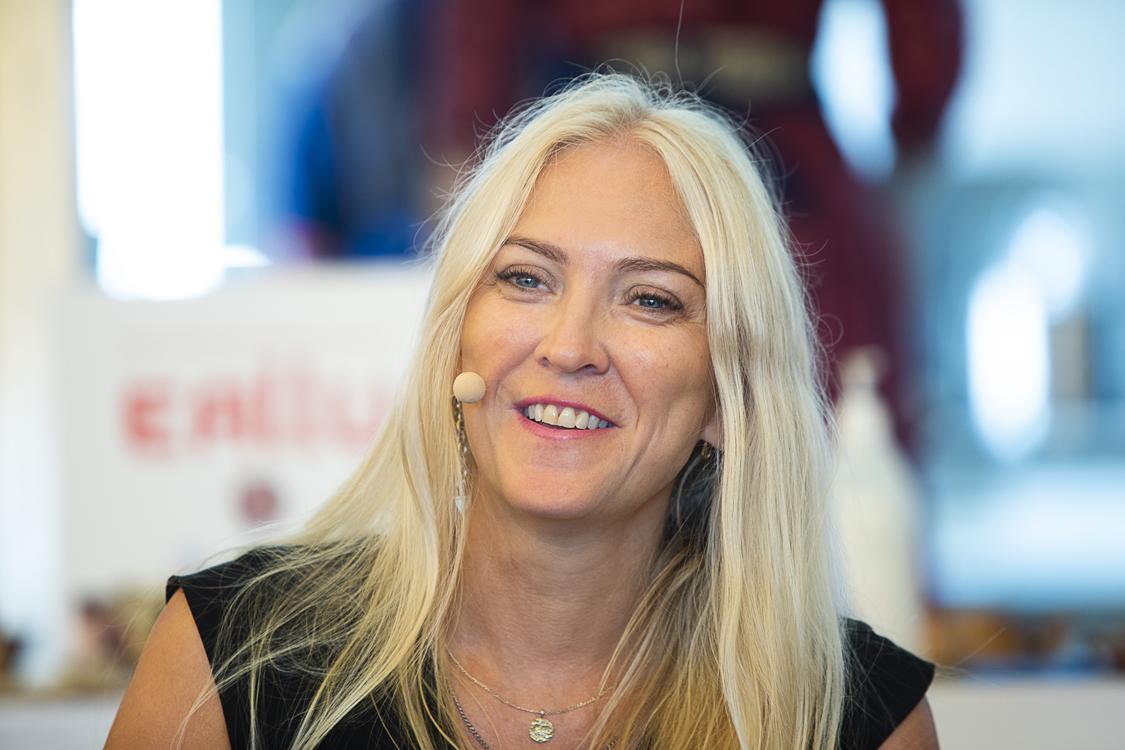
Færre må jobbe digitalt fra Oslo
Linda Haukeland explained that the county council is taking steps towards developing a new district policy.
– We are in full swing creating a policy that matches the challenge we are facing. We have jobs, but the young people need more than that to have good quality of life and to live. They need cultural and leisure facilities, they need schools and they need nursery schools.
Where you want to work is more about where you want to live
She also opined that we must reverse the trend of people working remotely digitally from Oslo towards workplaces in the north.
Can't find housing
In a comment from the audience, it was mentioned that many people had problems getting housing for new employees, because they had been sold as holiday homes. Guro Brandshaug replied that they also saw this problem in Kirkenes.
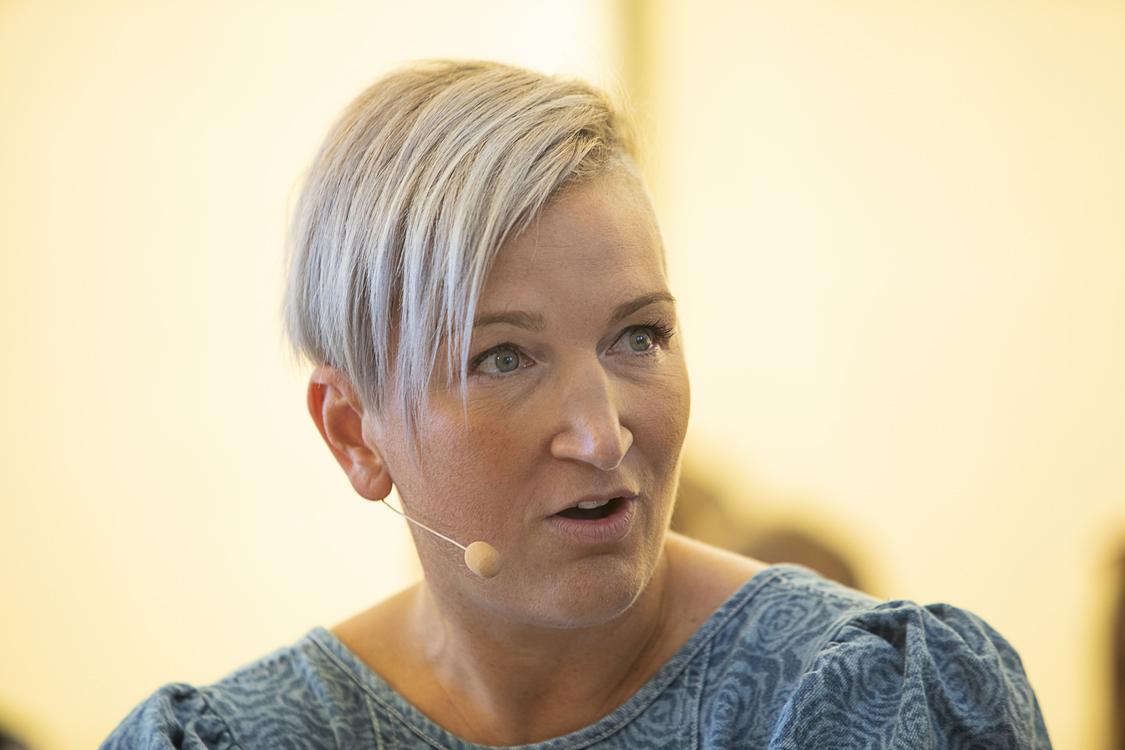
– I'm on the board at Finnmark hospital and we can't get hold of people, not even hired ones. Where you want to work is more about where you want to live. We have had an example of someone who said no to a job in the north because there wasn't a handball team for the children.
She also made a warning:
– There is a critical mass before one has to say that a local community no longer has a valid reason for being.
How do you switch to studded tyres?
So how do you get people to move north? This was discussed in the next panel, which consisted of:
- Silje Karine Muotka, President of the Sami Parliament
- Jonas Stein, Associate Professor, UiT Norway's Arctic University
- Siri Beate Arntzen, Project leader of "New in Nordland", Nord University
- Yasna Mimbela, Project leader, Rana Utvikling
- Kathrine Tveiterås, Vice Chancellor for education, UiT Norway's Arctic University (moderator)
Siri Beate Arntsen talked about the project New in Nordland at Nord University.
– A large part of the population growth is immigrants. This has stopped the negative population growth which would have been worse without it. Unfortunately, today we do not have good services that enable them to get a job quickly, learn the language, etc. Just knowing how to dress for the different seasons, changing to studded tires and that sort of thing sounds banal, but it is important to provide information about such things.
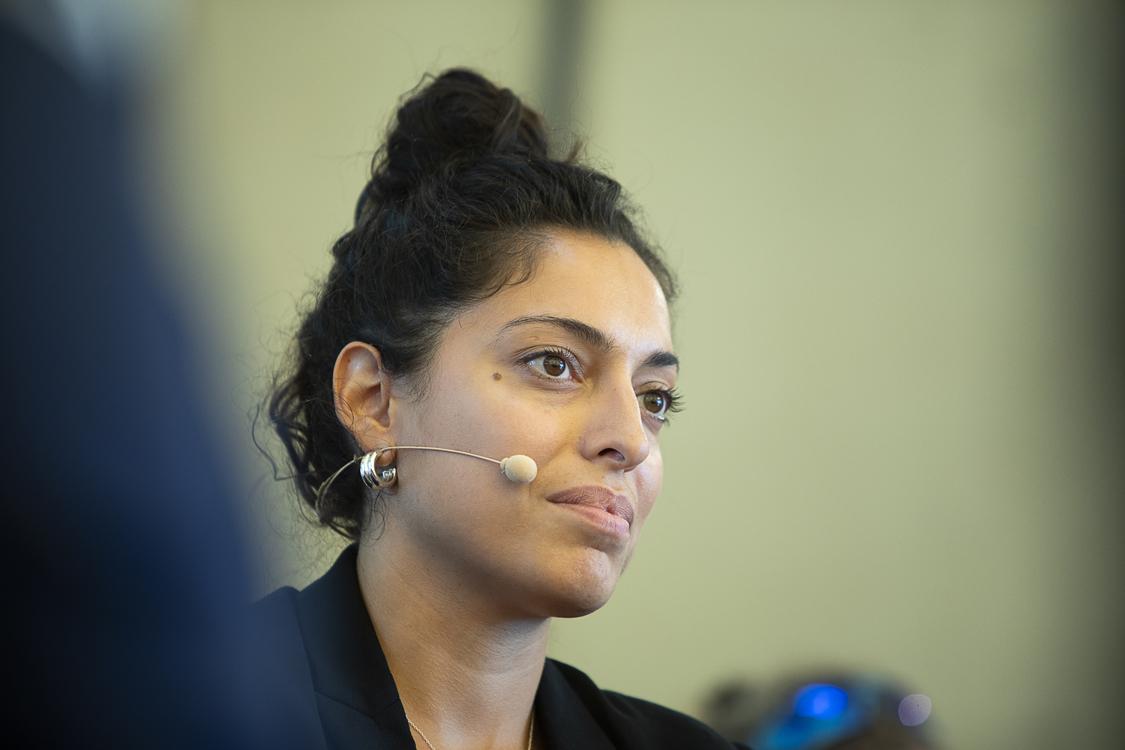
Project manager in Rana Utvikling, Yasna Mimbela, from Mexico knew a lot about this.
– When I came here, the biggest challenge was finding the information I needed, especially finding it in English. Many of the newcomers know what they need and they expect to find the right information, but it is not easy. And the fact that everything is now digital is an additional challenge.
In Rana, they are therefore now creating routines so that people can easily find places where they can go to get information, also digitally.
Are we too negative?
It was asked from the audience whether we were focusing too much on the negative, and if this made it even more difficult to get hold of people? The president of the Sámi Parliament picked up on this.
We received a lot of criticism about the project where A-ha was in Bodø and recorded a concert.
– We have a shortage of labor in all municipalities and have difficulty getting hold of people. But we also see a lot of positive things happening. The Riddu Riddu festival and several others have created cultural institutions that make young people want to come back. And when they travel around the world, they talk about it and the people listening to them want to know more. If each of us want others to succeed, we can achieve a lot.
A-ha in Bodø
And the positive mindset was only reinforced during the last panel which the High North Center was responsible for. The panel "A taste of the exciting life" was presented by the following people:
- Terje Nohr Olsen, Community Contact, Bodø 2024 European Capital of Culture
- Sajje Solbakk, Festival manager, Riddu Riđđu Festivála
- Anders Oskal, Director, International reindeer husbandry centre
- Grete Hovelsrud, Professor/President, Nord University and Nordlandsforskning/Norwegian Science Academy for Polar Research
Terje Nohr Olsen in Bodø 2024 said that they are already seeing positive effects from a lot of the things they have done.
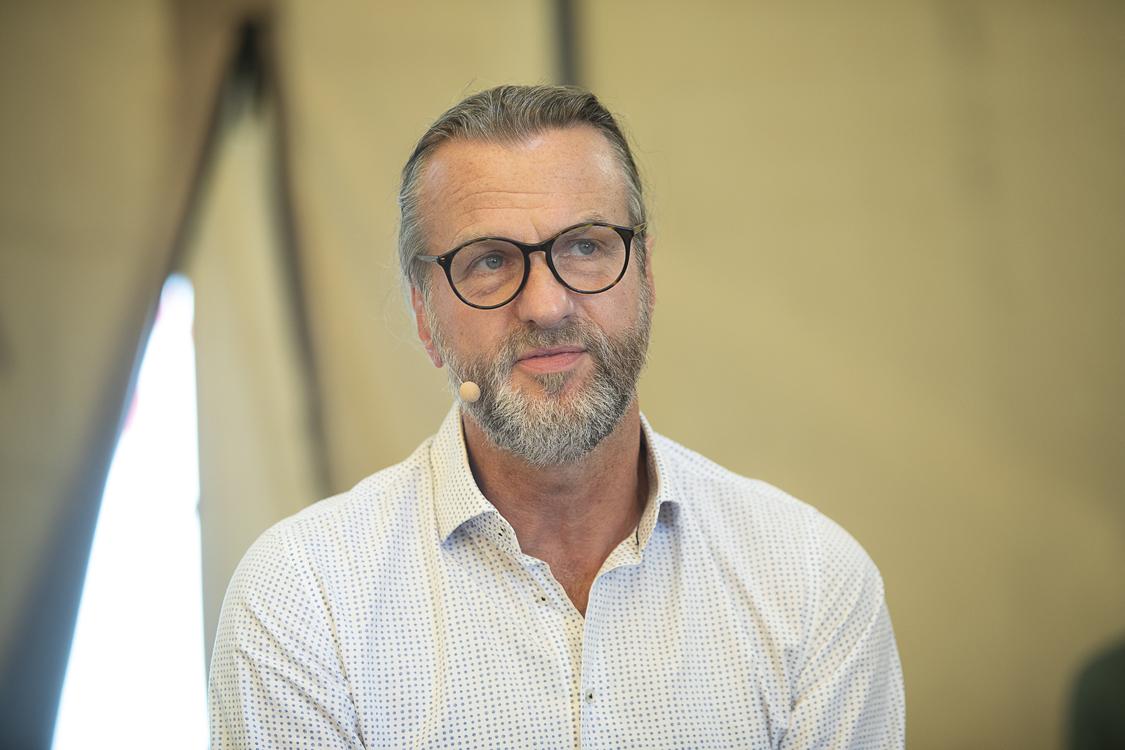
– We received a lot of criticism for the project where A-ha was in Bodø and recorded a concert. But we had young people with us who were involved in the production, because that was a requirement. These have now been put in direct contact with a director in London and one of the young people has studying movie directing in Oslo. He says he will return after completing his education. This is clearly a one-off case, but we have to see the possibilities such things as Bodø 2024 provide. For example, there were zero applications in 2021 for EU funds from Nordland for cultural projects. This year there were nine. So we have created attention around this.
The world's best cookbook
Anders Oskal talked about EALLU. 50 indigenous youth participated and the result was a book indigenous youth food knowledge & arctic change. This book won the prize for the world's best cookbook and it has gone from being just a book to becoming a movement.
– And when international master chefs come to us, they do so with the intention that they can learn from us, and not the other way around.
– Our parents and grandparents tried to hide the fact that they were Sami.
He said that they will also come up with a new project called the Samii Street Food Festival.
– We will make real food that tastes good. We want the young people involved and hope that we can show some of this during Arendalsuka next year.
The parents' denial
Sajje Solbakk is the new leader of the Riddu Riddu festival. She was also keen that young people should be involved.
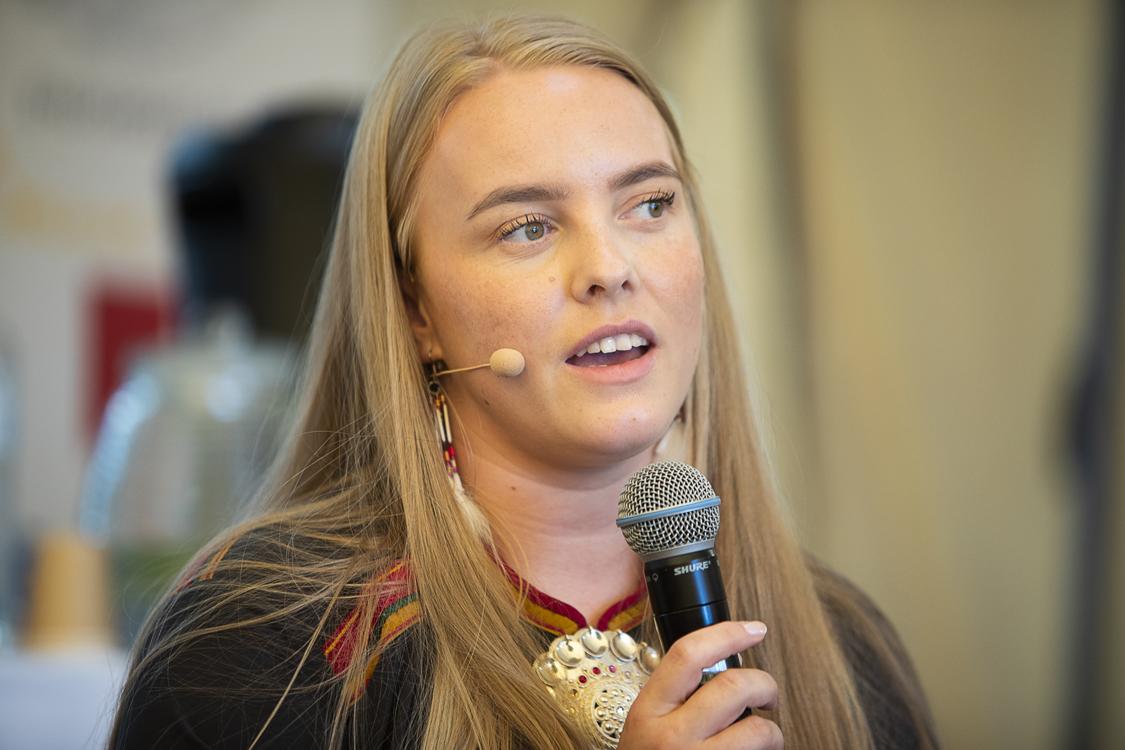
– It is not enough to give young people a youth organisation. They must be allowed to participate in the decisions and therefore the young people must be allowed to help decide what Riddu Riddu will be in the future.
She said that language and traditions often skip a generation.
– Our parents and grandparents tried to hide the fact that they were Sami. It was associated with shame. When I told them that I was going to lead Riddu Riddu, I had people in my family who thought that I should stay away from it.
But among young people, she sees a completely different attitude.
– Young people are proud of their Sami origins and want to contribute, so I am optimistic about the future.



